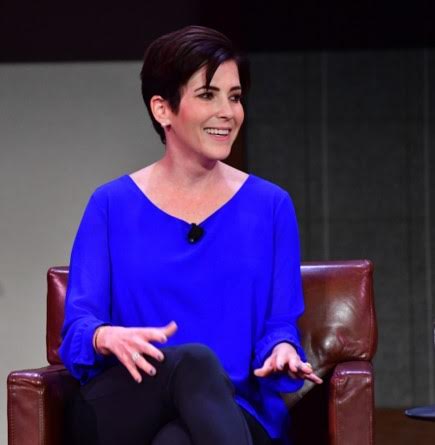Self-acceptance is essential to self-care and our overall well-being. If we can’t accept ourselves, our well-being is going to suffer, regardless of how diligent we are about any other physical and mental health practices.
Still, even with all the progress we’ve made in recent years on body positivity and mental health, the radical act of accepting ourselves for who we are has never been more challenging. Our society surrounds us with images of what supposedly healthy and perfect bodies look like. And of course, much of that is fueled by social media, which, in study after study, has been shown to damage our body image and self-acceptance. So how can we learn to accept ourselves and show up for ourselves in a way that nurtures our well-being?
To begin to answer this question, I had the privilege of talking with Rebekah Taussig on a recent episode of Deloitte’s “WorkWell” podcast. Rebekah is a writer, teacher, and advocate, whose popular Instagram feed, @sitting_pretty, is filled with what she calls “Mini memoirs.” I was thrilled to talk to her about her new book, Sitting Pretty: The View from My Ordinary Resilient Disabled Body, in which she chronicles her journey to self-acceptance with her trademark candor, humor, vulnerability, and authenticity.
Rebekah has been disabled since she was 3, and got her first wheelchair at age 6. She had a fairly normal childhood, with her “resilience and scrappiness” keeping her from realizing how differently she was experiencing the world. When she got to graduate school, discovering disability studies gave her a way to begin to understand herself. “It felt like the physics of the universe were transforming in real time,” she told me. “It just changed everything for me about how I saw myself and my story and gave me language to explain things I’d never been able to express before.”
But as Rebekah came to see the strength in her scrappiness, she also felt a sense of loss. “I ended up absorbing a lot of shame in the things that made me different, and I was trying very hard to minimize and mask and erase those in intangible and abstract ways,” she said. Part of that involved always cropping photos to hide her wheelchair or her paralyzed legs. But then she went online and connected with others who looked like her, which she describes as a “second wave of transformation.”
Gradually, she came to realize that she could be both scrappy and disabled, strong and paralyzed. “It took me a long time to be able to be all of that at once and it was important,” she said. “It’s important to be able to be all of me.” Instead of cropping her photos, she began including her legs. “I wanted there to be more beautiful images that included bodies like that out in the world,” she said. “I feel like my brain was responding differently to the image of my body.”
It’s such a great lesson for all of us: to be able to be — and accept — all of ourselves at once. We don’t all live with the challenges Rebekah does, but we all have to live in our bodies, which are always going to be changing over time. And, as she pointed out, our bodies have always been with us. “So much of it had to do with becoming more aware of the story of my body and thinking about my body over the span of my life and its presence in every single story that I’ve lived, and thinking about how my body has shown up for me,” she said.
So how can we learn to accept, appreciate, and love our bodies, which have always shown up for us in all of our stories? One way to start, said Rebekah, is by being more mindful and intentional about the body images we surround ourselves with, especially on social media. “I know what was huge for me was that I was able to filter the people on my feed and on social media, or even the things that I choose to watch.”
Her explanation of what resilience means to her comes from her own unique experience, but like so much of her writing, its lessons are universal. “When I think of the word resilience,” she said, “I think of buoyancy. I think of adaptability and flexibility — an ability or a willingness to continually reimagine. Adaptability is an obvious part of the experience of a person who lives in a body and in a world that is not made for the body they live in. You have to continually figure out how to interact with the world and how to show up, even when it’s not thinking of you.”
And that’s a lot easier to do when we accept ourselves and celebrate that we’re all perfectly imperfect. You can listen to the whole episode here.


